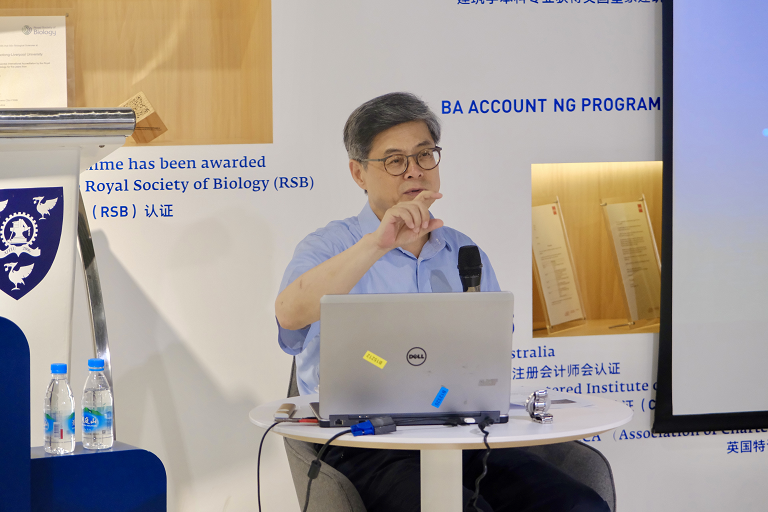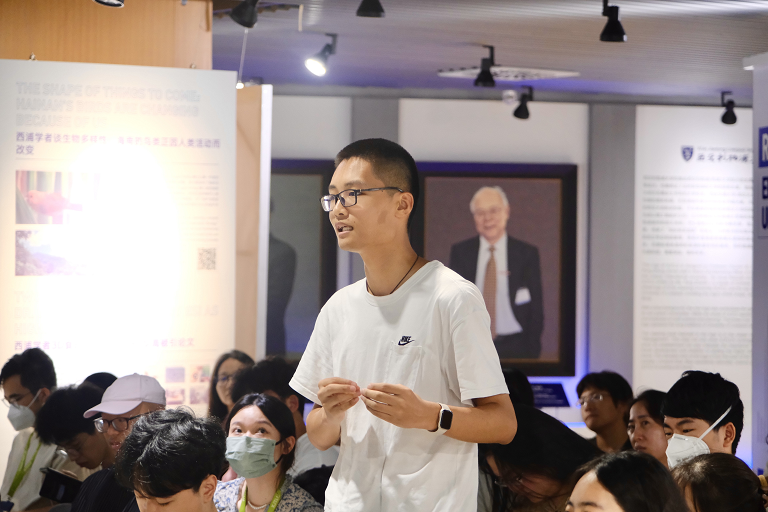The lack of high-level international talent with global competencies is one of the biggest bottleneck issues currently facing China in its comprehensive and deep participation in global governance," Ma Yansheng, former Minister-Counselor of the Chinese Embassy in France, highlighted during the lecture on "Global Governance and Cultivating Talent with Global Competencies" at Xi’an Jiaotong-Liverpool University.

Mr. Ma Yansheng currently serves as the convenor of the Expert Advisory Committee for the "New Youth Global Competence Talent Development Program" under the China Education Association for International Exchange. He has previously held positions as the Education Counselor at the Chinese Consulate General in Houston, the Deputy Permanent Representative of China to UNESCO, the first Education and Cultural Counselor at the Mission of China to the EU, and the Minister Counselor for Education at the Chinese Embassy in France. He has worked exclusively with UNESCO for 25 years.
According to Counselor Ma, the shortage of high-level international talent with global competencies is one of the biggest bottlenecks currently hindering China's full and deep participation in global governance.
"For example, within the United Nations system, the number of Chinese professionals in various organizations is low, and their positions are at relatively junior levels, limiting their influence on the formulation of major policies and rules in international organizations."
"At present, the number and ranking of Chinese employees in international organizations are disproportionately low compared to China's substantial financial contributions and are not aligned with China's status as a major power and its overall national strength. This mismatch restricts China's voice in international organizations," Counselor Ma emphasized.

Drawing on his 40 years of personal experience in cultural diplomacy and international cooperation and exchange in education, Counselor Ma believes that the core competencies for global competence include: a strong sense of Chinese identity, an international perspective, and a global mindset; familiarity with international rules; strong cross-cultural communication skills; professional expertise and international competitiveness; and proficiency in at least one internationally used language.
In Counselor Ma's view, professional expertise is reflected in interdisciplinary skills. "Chinese students generally have narrow academic scopes, a lack of broad foundational knowledge, and insufficient internship and practical experience," he observed. "In the U.S. and the EU, I noticed that by the time their students reach the postgraduate level, most have studied two or more fields. In contrast, many students in China stick with the same major from undergraduate to graduate and even doctoral studies."
Counselor Ma summarized, "I believe the core competencies and skills for high-level international talent with global competence can be distilled into 36 characters: 'A sense of Chinese identity, an international perspective, a global mindset; interdisciplinary expertise, multilingual proficiency, comprehensive skills; competitiveness, communication skills, and the ability to bridge cultures.'"
2023 July 20
 English
English 中文
中文

 Club Overall:
scs@xjtlu.edu.cn
Club Overall:
scs@xjtlu.edu.cn
